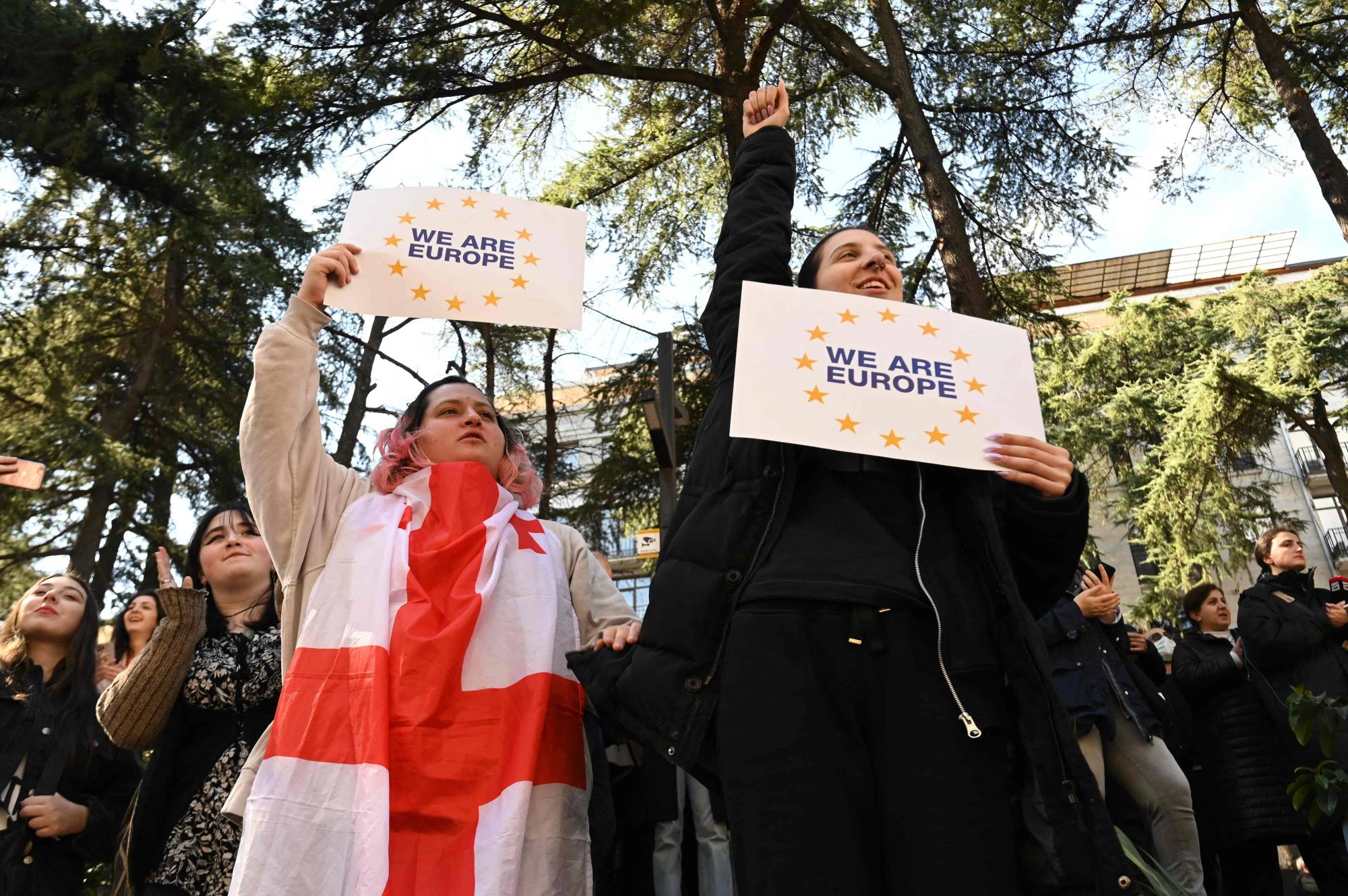After violent clashes with riot police in Tbilisi, Georgian protestors won a victory recently when the ruling party announced it was withdrawing the proposal cracking down on civil-society groups and the media, which sparked the demonstrations. But the government has refused to renounce the bill, many protestors have been jailed and opposition parties are rightly worried it is just the beginning of a weakening of democratic freedoms.
The scenes in Tbilisi echo those in the 2014 Maidan Uprising, when Kyiv was filled with Ukrainians demonstrating against President Viktor Yanukovych’s decision to abandon the European Union-Ukraine Association Agreement for closer ties with Russia instead. Georgia’s fragile democracy — one of the few staunch U.S. and European allies in the region until recently — now faces a similarly perilous moment. Georgia’s westward march, like Ukraine’s, is one Putin has been determined to thwart.
The irony of Georgia’s plight is that Putin’s Ukraine campaign can be said to have started then, when he found a pretext to launch an invasion in 2008 on behalf of separatists in the self-declared republics of South Ossetia and Abkhazia. The war resulted in brutal ethnic cleansing of Georgians in those regions and a strategic victory for Putin, whose forces currently occupy about 20% of the nation’s territory. He also used it as a template for the 2014 annexation of Crimea, the precursor to incursions into Ukraine’s Donbas region and last year’s full-scale invasion.



